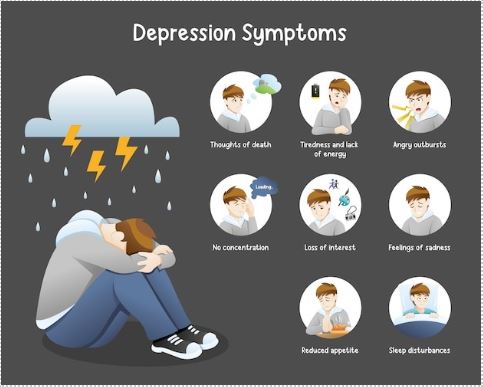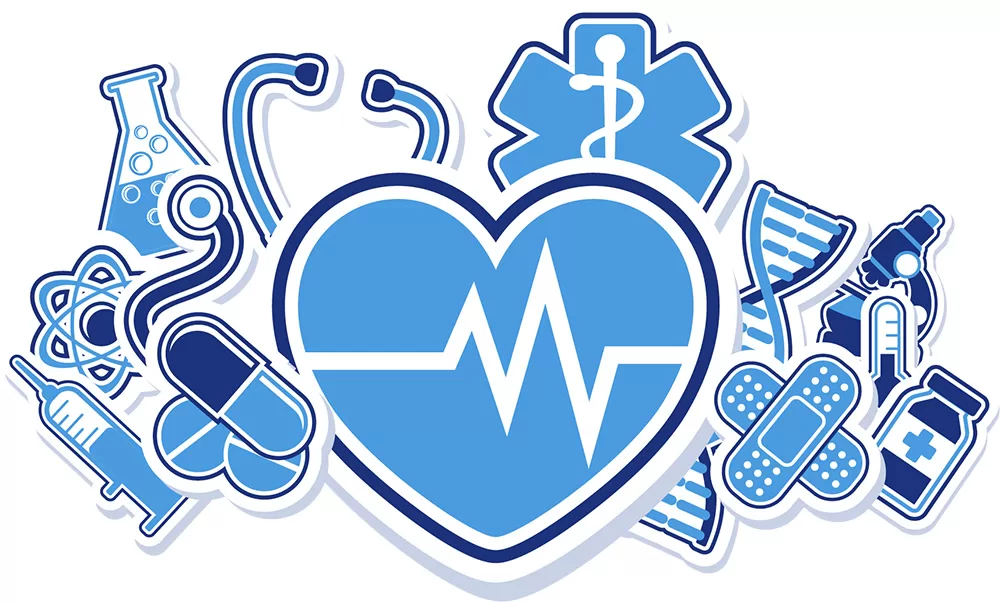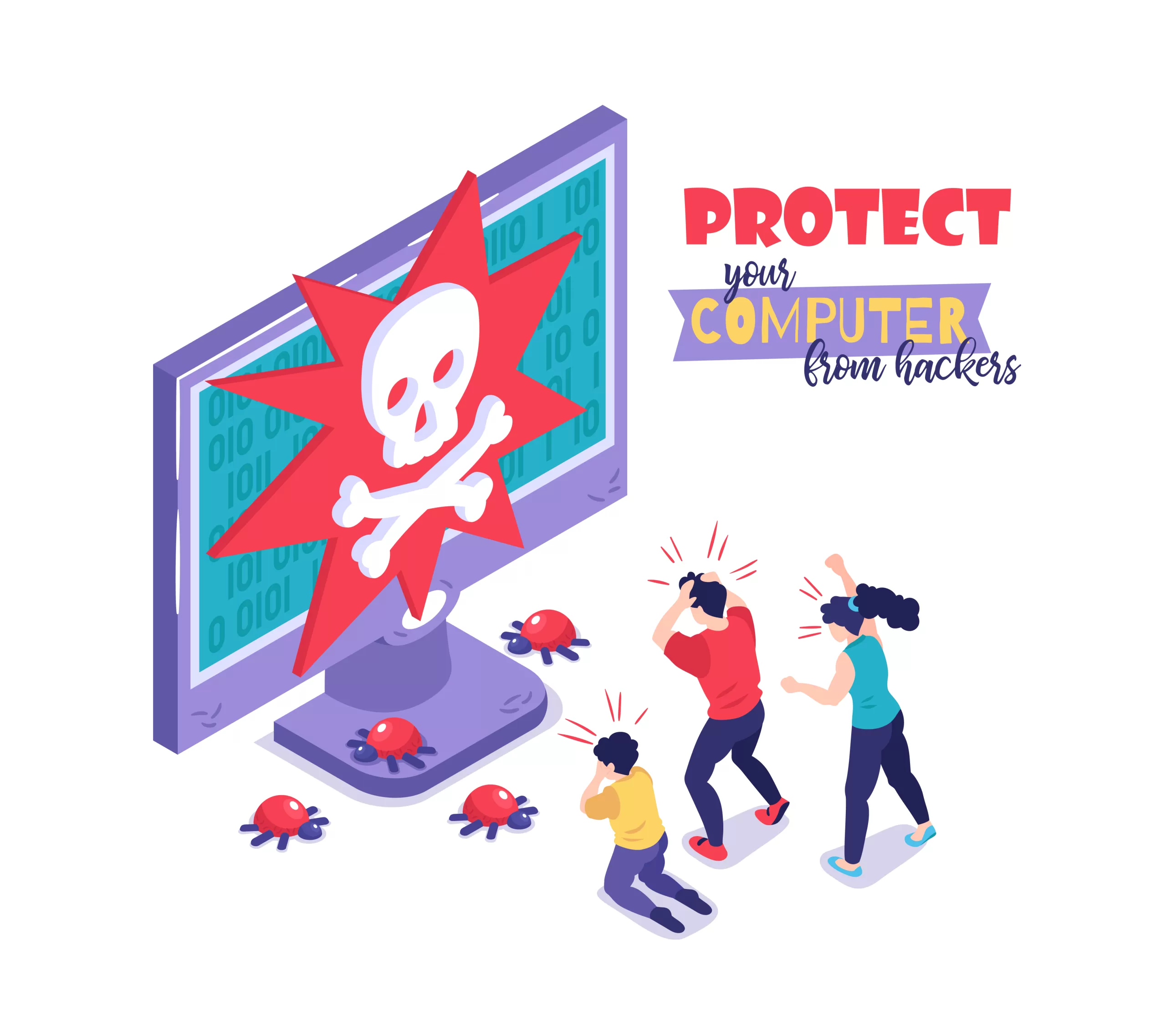
In my previous article, I discussed the definition of depression, its symptoms, its causes, and some practical ways of treating it. In this article, we will explore the various types of mental disorders and their treatment. In this fast-paced life, the modern man faces many depressed and worst situations, such as the loss of dear ones, loss of money, conflict in relationships, and many more. All these losses are enough for anyone to go into depression. If these mental problems are left unchecked, they may be the cause of an individual’s death.
Various types of depressed moods with their symptoms, causes, and treatments are discussed below:
- Unipolar Depression: It is another name for Major Depressive Disorder (MDD). It is characterized by a depressed mood for at least two weeks or a lack of interest in daily activities, along with other symptoms such as noticeable changes in weight, hunger, sleep, energy, concentration, and self-esteem.
- According to research, Unipolar depression is the major cause of suicidal attempts. The number of people who suffer from this depression falls between 8% to 12%. Women mostly suffer from such mental disorder.
- There is no single cause of unipolar depression. There can be a variety of reasons. Some causes of unipolar depression are listed below:
- Having a family member with depression (Heredity problem)
- Unexpected life events, such as the loss of a family member and conflict with others.
- Hormonal changes, such as during pregnancy, menopause, or thyroid disorders
- Chronic physical illnesses, such as diabetes, heart disease, or cancer
- Substance abuse, such as alcohol or drugs.
Treatment can help reduce the severity of depressive mood, improve quality of life, and prevent suicide. Treatment options for unipolar depression include:
- Lifestyle changes: This includes making healthy choices that can support mental and physical well-being, such as eating a balanced diet, exercising regularly, getting enough sleep, avoiding alcohol and drugs, and engaging in enjoyable activities.
- Psychotherapy: It can help a person to understand the causes of his depression, and deal with negative thoughts. There are different types of psychotherapies, such as cognitive-behavioral therapy, and interpersonal therapy that help to cure mental disorders. For details you should consult an expert for a better opinion.
- Medication: This involves taking prescribed drugs that affect the brain chemicals that help to regulate the mood. Some medicines are common, such as serotonin, dopamine, and norepinephrine. Please do not take these medicines if not prescribed by any doctors.
Some self-care strategies like meditation, yoga, herbal remedies, and nutritional supplements are also helpful for improving major mental disorders. You can always adopt lifestyle changes to be better, we recommend you consult an expert in case of any medication or therapy required. It is okay to consult an expert.
- Bipolar depression: This is also known as manic depression or bipolar affective disorder (BAD). It is a mental disorder that causes extreme changes in mood, energy, and behavior. People with bipolar disorder experience mental illnesses like mania (an obsession with anything), hypomania (a mild form of mania), and depression, which can last from days to weeks or even months. These can affect their daily functioning, relationships, and well-being. Over-craving for collecting phones, clothes, or anything, feeling extremely happy or irritable, being easily distracted, or having trouble concentrating may be the symptoms of Bipolar depression.
- According to the research, more than 10 million cases of Bipolar depression are found in India per year.
- Experts believe that it involves a combination of biological, psychological, and environmental factors. Some probable causes are:
- Biological Factors: In this, people have differences in the functioning of their minds. These differences affect how they process emotions, cope with stressful situations, etc.
- Psychological Factors: People who have bipolar depression may have low self-esteem and negative thoughts.
- Environmental Factors: People who have bipolar disorder may be affected by abuse, relationship issues, loss of near one, loud noise, etc.
Where there is disease, there is treatment. There are some possible treatment options discussed below:
- Bipolar disorder can be treated with the same treatments as unipolar disorder. These treatments can help people with bipolar disorder manage their symptoms and improve their quality of life.
A few medical care options are given below:
- Medications:
- Mood Stabilizers: Medications such as lithium, valproate, and lamotrigine are commonly prescribed to stabilize mood and prevent the extreme highs (mania) and lows (depression) associated with bipolar disorder.
- Antipsychotics: Atypical antipsychotic medications, such as olanzapine, quetiapine, and risperidone, may be used to manage symptoms of mania and, in some cases, depression.
- Antidepressants: In some instances, healthcare providers may cautiously prescribe antidepressant medications to address depressive symptoms. However, this is often done in combination with a mood stabilizer to avoid triggering manic episodes.
PS: Do not take any medications without consulting a qualified doctor.
- Psychotherapy:
- Cognitive-Behavioral Therapy (CBT): CBT is a widely used therapeutic approach that helps individuals identify and change negative thought patterns and behaviors. It can be beneficial for managing both depressive and manic symptoms and promoting better coping strategies.
- Interpersonal and Social Rhythm Therapy (IPSRT): IPSRT focuses on stabilizing daily routines and sleep patterns to help regulate mood. It addresses the connection between disruptions in daily life and the onset of mood episodes.
- Family-Focused Therapy: Involving family members in therapy can help improve communication, support, and understanding. It can also assist in identifying and addressing potential stressors that may contribute to mood episodes.
- Lifestyle Changes:
- Regular Sleep Patterns: Maintaining a consistent sleep schedule is crucial for individuals with bipolar disorder. Disruptions in sleep patterns can trigger mood episodes. Establishing a regular sleep routine, including a set bedtime and wake time, is recommended.
- Stress Management: Learning effective stress management techniques, such as mindfulness, relaxation exercises, and problem-solving skills, can help individuals cope with stressors that may contribute to mood swings.
- Healthy Lifestyle Choices: Adopting a healthy lifestyle, including regular exercise, a balanced diet, and avoiding substance abuse, can contribute to overall well-being and may help stabilize mood.
- Persistent depressive disorder (PDD): This is also known as dysthymia or chronic depression. It is a milder but longer-lasting form of depression. Some symptoms are a person experiencing low mood and reduced interest in daily life for two years or more. It can happen to anyone at any age
Every problem has some cause. Some reasons for PDD are:
- Stressful Life Events:
- Stressful life events can be significant triggers for the onset or exacerbation of depressive symptoms. These events may include loss of a loved one, relationship difficulties, financial challenges, work-related stress, or other major life changes.
- PDD may develop in response to chronic stressors that persist over an extended period, contributing to a persistent low mood.
- Hereditary Problem:
- There is evidence that genetics plays a role in developing depressive disorders, including PDD. Individuals with a family history of depression may be at a higher risk.
- Specific genes or combinations of genes may contribute to a person’s vulnerability to depression, although genetic factors alone are not typically sufficient to cause PDD. Environmental factors also play a crucial role.
- Hormonal Changes:
- Hormonal changes, particularly fluctuations in neurotransmitters like serotonin and norepinephrine, are implicated in the development of depressive disorders.
- Changes in hormonal balance, such as those occurring during puberty, pregnancy, postpartum, or menopause, may contribute to the development or exacerbation of depressive symptoms.
Along with physiotherapy and medication, some self-care strategies help to reduce depression.
- Regular exercise: Daily workout helps to strengthen the immune system and reduce mental disorders.
- Nutritious diet: Adding vitamins and minerals to enrich food helps to lessen depression.
- Relaxation techniques: These include meditation, yoga, and breathing exercises that help to calm your mind.
- Social Support: Family members or friends can give you the emotional support that soothes your mind.
- Seasonal Affective Disorder (SAD): This depression occurs during certain seasons, usually in extreme winters, when there is less natural sunlight. It causes symptoms such as low mood, fatigue, weight gain, social withdrawal, insomnia, or sleep deprivation.
Some factors may be responsible for this type of disorder.
- Serotonin Levels: A change in weather might drop the serotonin level, which is responsible for mood swings.
- Melatonin Levels: A changing season might disrupt the melatonin level in the body. It causes sleep patterns and mood.
When is it necessary to see the doctor?
It is common to feel down for some days. However, if you are feeling down for long days, it is the right time to see the doctor.
5. Disruptive mood dysregulation disorder: This is a condition in which children and teenagers experience irritation, anger, and temper outbursts for at least 12 months.
This disorder affects the growing children. Due to this, they develop an angry mood or irritating behavior most of the time. They may struggle with their friends and their family members. They create problems at home and school. They do not understand their behavior.
There are no proven treatments for this disorder. However, some self-care strategies may help to take out the children from this mental illness that given below:
- Counselling of child: Parents should counsel the child regularly. Listening to their problems and talks helps a lot to regulate the child.
- Set rules and regulations: There should be fixed rules for teenagers. They should know about their working and playing hours. In this way, parents can get disciplined in their wards.
- Practice breathing exercises: Practice taking breaths from the nose rather than the mouth can help regulate the child.
- Create a healthy environment: The atmosphere of the home should be very relaxed and peaceful, where children can easily share their feelings and issues.
These types of depression are common, but there are others also, such as atypical depression, situational depression, and premenstrual dysphoric disorder.
6. Psychotic depression: This mental disorder is a type of major depressive disorder that involves the symptoms of illusions. People may hear unreal voices and see those things which are not real. These hallucinations are part of their imagination.
Some factors, such as genetics, stress, and trauma are the causes for this type of depression.
Some treatments for Psychotic depression are:
- Cognitive behavioral therapy: CBT helps t develop coping skills and improve self-esteem.
- Support therapy: Moral support of the family helps a patient with depression to reduce fear.
7. Postpartum depression (PPD): It is a type of depression that affects some people after giving birth. There are some symptoms, such as anxiety, sadness, loneliness, and difficulty in bonding with the child. They are not able to cope with daily activities also.
Some factors of this disorder mentioned below:
a) Having complications in pregnancy.
b) Having financial problems.
c) Having a premature baby.
d) Having a history of trauma.
Treatments of PPD are discussed below:
- Cognitive-behavioral and psychodynamic therapy: It helps the person cope with feelings and thoughts.
- Medication: some medicines, such as antidepressants, are used for reducing this type of depression.
- Support groups: Some support groups, such as face-to-face meetings, can provide support to the patient where a person can share his feelings and challenges with others. They can provide tips and some advice to the patient.
8. Premenstrual Dysphoric disorder (PMDD): Women who suffer from this disorder have (PMS) symptoms, such as bloating, headache, and breast tenderness before a week of their menstrual period.
Some common symptoms of this disorder are anxiety, change in diet, insomnia, mood swings, fatigue, low self-esteem esteem, difficulty in concentration and suicidal thoughts, etc.
Some factors are responsible for this disorder:
- Hormonal changes during the menstrual period are the major cause of this disorder.
- Changes in Serotonin level that stabilizes mood may also cause PMDD.
Some treatment options are:
- Cognitive Behavior Therapy and Hormonal therapy: It may help to change negative behavior and stabilize the hormonal imbalance.
- Medication: Selective Serotonin reuptake inhibitors as antidepressants used for most types of depression.
9. Atypical depression: This is a disorder in which the symptoms are different from the symptoms of another type of depression. On the one hand, the patient shows remarkable mood improvement in response to positive events. It is called mood reactivity. On the other hand, he becomes sad at any time or in any situation. It is called mood sensitivity.
Women and teenagers are mostly affected by this type of depression.
Genetic factors and environmental factors can be the cause of this mental disorder.
Cognitive behavior therapy, psychotherapy therapy and some antidepressants can be the treatment options.
Self-care strategy for dealing with this type of mental disorder.
- lifestyle changes
- physical exercise
- Avoiding alcohol and drugs
- Getting enough sunlight
- Staying connected with supporting people.
I hope, after reading this article, you are aware of several types of depression and their treatment options. If anyone is facing any mental disorders, one must seek professional help as well as practice self-care strategies to cope with depression. One must consult a doctor before taking any medicine.









